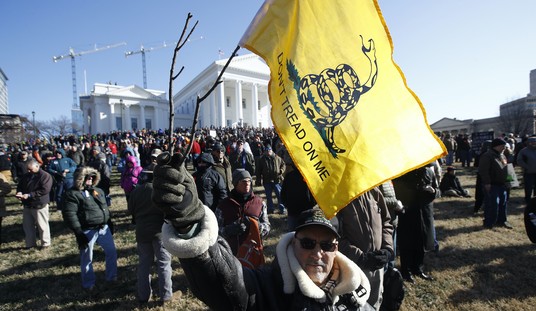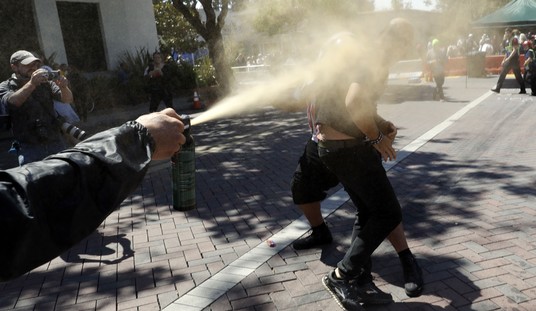As we’re still reeling from the latest mass shooting–one that, as of this writing, we still know very little about–we’re still dealing with the fallout from the shooting we learned about earlier this very week.
Despite the upcoming Thanksgiving holiday, it’s not shaping up to be a super fantastic week.
What that means, though, is that we have a lot of articles and op-eds discussing what should be done about mass shootings even as we’re still trying to get the basic facts regarding what just happened.
One such piece comes from The Hill, and the authors’ issue is a lack of enforcement of existing gun laws, but to that end, they seem to think that gun control really is the answer and everyone else is to blame.
The Colorado Springs LGBTQ+ nightclub shooting shows the limits of red-flag laws and the need for multiple approaches to prevent mass shootings. In 2021, the suspect in this shooting was arrested after reportedly threatening violence with a bomb, “multiple weapons” and ammunition. The threat was serious enough that police evacuated neighbors. Still, law enforcement did not seek a red-flag order, perhaps because the county commission had declared the county to be a Second Amendment sanctuary.
Well, maybe. That might have prevented law enforcement from seeking out an order, but it wouldn’t have stopped the family.
The judges responsible for issuing such orders generally aren’t beholden to county commissions, so there would be little to stop the family from seeking such an order.
And while the county might be a sanctuary county, a court order trumps the county commission every time.
States such as Colorado with red-flag laws clearly need to use them more, especially where there is violent hate speech. The 31 states that do not have red-flag laws should pass them immediately. But, as a supplement to red-flag laws, we should empower law enforcement to prevent mass shootings by removing firearms from people who are prohibited from possessing firearms without a red-flag order.
It’s easy to say after the fact that people need to use the red flag law more, but we also need to remember that we’re seeing what happens with the benefit of hindsight.
It’s not easy to imagine a mother or a father looking at their baby boy and thinking, “Oh, he’s going through a phase. He’ll get past it,” only to find out after something like this that they were wrong. People don’t generally think their loved ones are capable of such an act.
As for law enforcement, well, rather than use a red flag law, why didn’t the Colorado Springs shooter get prosecuted for the felony he reportedly committed prior to the shooting? That’s something Cam talked about Cam & Co on Tuesday.
But what about prohibited people? That seems a strange way to wrap up a paragraph, but it leads into this one.
The St. Louis school shooting in October illustrates. Just nine days before the deadly rampage, police said the shooter’s mother called 911 and asked them to remove her troubled son’s AR-style rifle. The police declined to do so, explaining that they did not have “clear authority” to confiscate the rifle that day because Missouri does not have a red-flag law. But unbeknownst to the officers, the shooter was committing a crime simply by possessing the firearm.
Of course, they neglect to note that the St. Louis shooter’s gun was taken away from him and given to someone else. He managed to obtain that firearm yet again. No, the police didn’t take it away from him and lock it up at the station, but let’s also not pretend absolutely nothing was done.
See, the issue here is that the authors want more laws passed, particularly giving the police the authority to conduct background checks on gun owners.
Police shouldn’t have carte blanche to initiate background checks on private citizens. But when police have probable cause to believe that an individual falls into a category that prohibits possession, they should be able to query the database. This probable cause requirement parallels the prerequisites for other types of police searches and means that the background checks would satisfy the constitutional requirements of the Fourth Amendment.
The St. Louis tragedy provides a vivid example of probable cause. The family told police that the gun owner had “spent time in and out of mental health programs.” This information should have been a sufficient justification for the police to check the database, because federal law prohibits firearm possession by individuals who have been involuntarily committed to a mental health facility.
Of course, like many gun control proposals–and this is a gun control proposal–it sounds reasonable to those who just look at the surface of things.
Yet it’s also not like no one in law enforcement has ever lied about probable cause, and therein lies the concern. It’s like the cops that make a traffic stop because “they smell weed” from in another vehicle sealed in bags.
While that represents the minority of police officers, there need to be constraints in place.
And allowing background checks for probable cause just seems like it could open all kinds of issues.
You see, it’s easy to write about the perfect policy effort while sitting in your comfortable home office and tapping away on your keyboard. I mean…hello? What do I do for a living?
But you also have to consider all the ways a proposal can be broken and abused before you really push it. Sure, you’ll probably miss some stuff, but at least you can put forth the effort.
With The Hill, they didn’t.
Instead, they reacted with emotion and thought about relatively isolated incidents and acted as if they were indicative of a much broader problem. If they are, it’s not the problem the authors believe.
Mass shootings do deserve our attention. But that doesn’t mean new gun control laws of any type are the answer.








